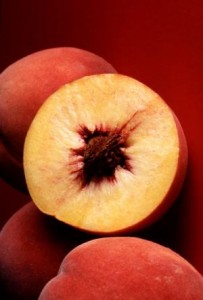
More evidence that low-calorie sweeteners are bad for your health
Studies show that artificial sweeteners can raise the risk of hypertension, metabolic syndrome, type 2 diabetes and heart disease, including stroke.

Natural Health News — New research has shown that peach extract contains substances that could help stop breast cancer metastisis.
Lab tests performed at Texas A&M University’s AgriLife Research unit found that the the mixture of phenolic compounds in the peach extract are responsible for halting the spread of the cancer to other sites in the body.
These findings were published in the Journal of Nutritional Biochemistry.
The scientist studied an aggressive type of breast cancer cell implanted in mice and found an inhibition of metastasis in those animal consuming the peach extract.
According to lead author Dr. Luis Cisneros-Zevallos, a food scientist for AgriLife Research in College Station. “…after determining the dose necessary to see the effects in mice, it was calculated that for humans it would be equivalent to consuming two to three peaches per day.”
This is very important because it can be translated into something that is also beneficial for people, he added. The study was conducted using the peach variety Rich Lady. However, according to Cisneros-Zevallos, most peach fruit share similar polyphenolic compounds but might differ in content.
A dietary tool
The new study also builds upon the researchers’ previous work, which showed that peach and plum polyphenols selectively killed aggressive breast cancer cells and not the normal ones.
In the western hemisphere, breast cancer is the most common malignant disease for women.Most of the complications and high mortality associated with breast cancer are due to metastasis, Cisneros-Zevallos pointed out.
The findings of this study suggest that the peach extract polyphenols work by targeting and modulating enzymes known as metalloproteinases, which are involved in the spread of breast cancer to other sites in the body.
“The importance of our findings are very relevant, because it shows in vivo the effect that natural compounds, in this case the phenolic compounds in peach, have against breast cancer and metastasis. It gives opportunity to include in the diet an additional tool to prevent and fight this terrible disease that affects so many people,” he said.
The next, step, said the scientist, would be to test for this effect in humans.

Please subscribe me to your newsletter mailing list. I have read the
privacy statement